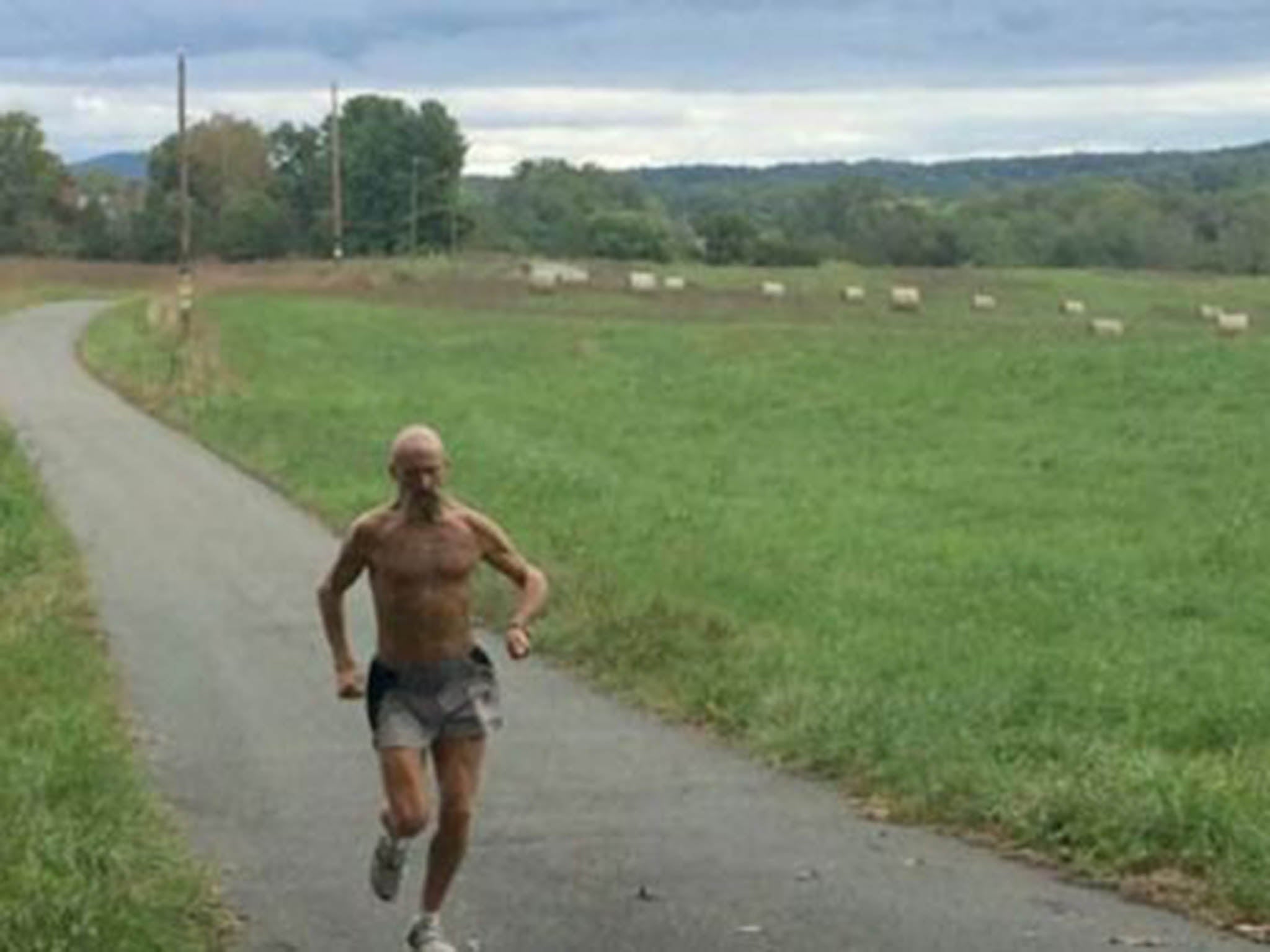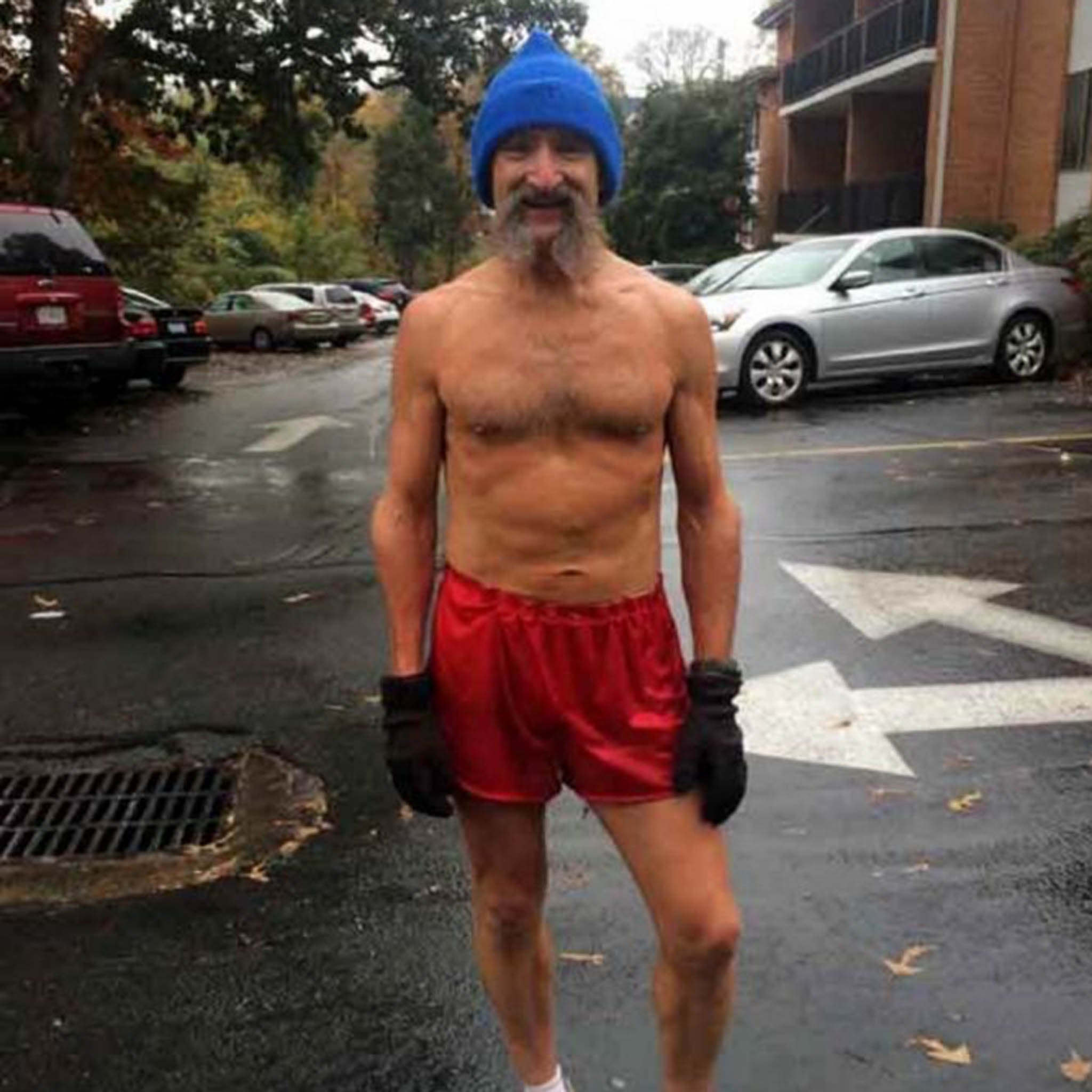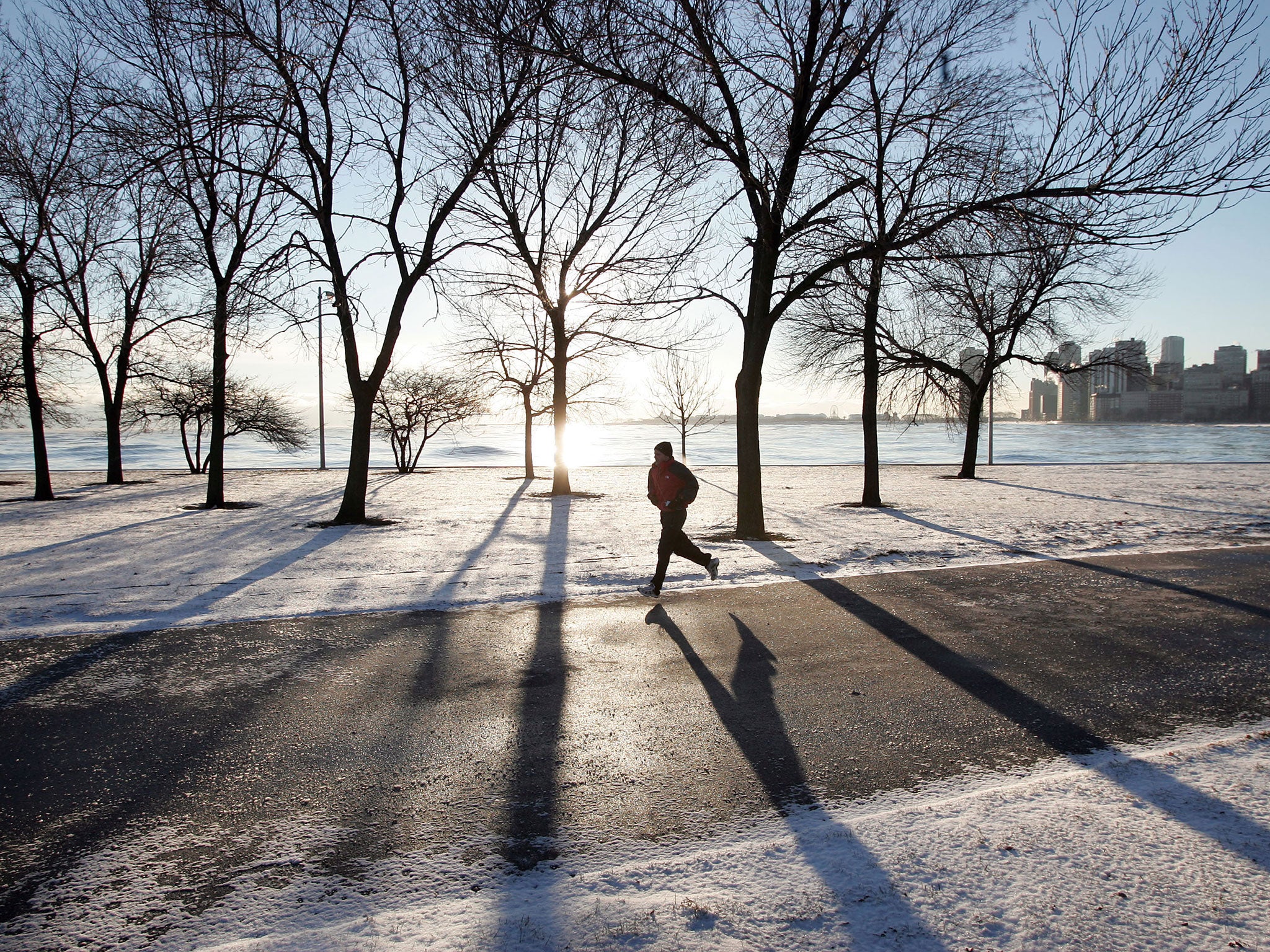'Running Man' Philip Weber: 55 year-old who ran 5,200 miles a year dies after being hit by SUV
'Everyone’s going to miss the Running Man'

Over 30 years of teaching in Virginia, Billy Catron sent a lot of kids off to the University of Virginia. He always told them to watch for his brother-in-law, Philip Weber.
Every student, without exception, came back and said: I saw him! I see Running Man all the time!
Weber was hard to miss. First there were the simple odds: He ran so much, and so often, and for so long, since the 1980s. On a summer day, the 55-year-old U-Va. alum might run a half-marathon in the morning before it got too hot, then another one in the evening as things cooled off. On a winter day, he might knock out a quick-paced 20 miles, then get up the next day and do it again. And again.
He ran about 100 miles a week, 5,200 miles a year.
Besides the sheer numbers, Weber undoubtedly drew the eye. He wore short-shorts and often ran bare-chested even in the winter, with a long forked goatee, perhaps, or a Fu Manchu and a shaved head.
“He’s a colourful, odd bird,” Catron said.

He often did a full-body workout while running, said Anson Parker, a Web developer at U-Va. and a one-time neighbour of Weber’s, with his arms cocked out to the side like chicken wings, taking tiny steps like a ballerina, an incredibly short stride intended to keep him moving quickly but with far less impact, to minimise the potential for injury. “And he’s ripped - his thighs were huge, so he’s got these giant legs in these cutoff shorts out of the ’80s that would be perfect for Daisy Duke, but they’re on Phil. When it’s really cold, and you see this dude burning up the street with his little short-shorts with his wings out,” people would often laugh, or smile, Parker said.
No one knew Weber well. But everyone knew Running Man.
So when people learned that Weber had, one dark and foggy early morning this week, been hit by an SUV and killed while he was running, there was an outpouring of shock and grief.
“Everyone’s going to miss the Running Man,” Parker said. “He was a landmark. He was a moving fixture of Charlottesville.”
Some talked about the accident, another sign of the tension between the once-rural, fast-changing area’s many cars and the people who like to run or bike or wander.
Most just talked about how much they would miss seeing him on the roads.
Responding to stories on local TV station NBC 29, hundreds of people wrote their memories online, about how the frequent sight of him was a reassuring constant in the community, or an inspiration to get in shape, or a lesson in drive and perseverance.
One woman told Catron that during a recent winter’s “snowpocalypse” when Charlottesville was shut down by deep snow she saw Running Man, short-shorted, shirtless, running behind the plow.
He ran by U-Va.’s football stadium, and star players would call out to him to stop and talk. He ran by Rugby Road, and the fraternity brothers would gather, yelling and cheering him on.
It was like an ongoing game, Parker said, with someone asking: “Guess where I saw Running Man?” and everyone waiting for the latest, craziest location.
Parker once left a party in the woods hours after midnight and, on his way home, saw Running Man pounding along the road.
When Weber’s route passed, for a time, by an office where Parker was working, his colleagues would call out and gather at the window to watch him pass.
Some guys named their band after him.
Running framed the surface of Weber’s life: Those distances required time, calories, sneakers, steps to avoid injuries, thousands of mundane and consistent details. But his mind was brilliant and his interests scholarly, wide-ranging.
Few people saw that side of him. They saw him running.
After he graduated from U-Va., where he majored in chemistry, Weber turned down a job with Dow Chemical, Catron said. He stayed near campus, never marrying or even forming close friendships, getting by with very little money, valuing his independence, his health and his strength.

He gave blood every month and a half, like clockwork.
He read voraciously, literature and sonnets, books about art, science and music. He studied German, architecture, and embarked on projects, such as building furniture out of cardboard. He loved drama and going to the theater. Once, when he and Parker were gathering discarded two-by-fours for a project, Weber began quoting lines from “Henry the VIII,” reminded of a scene in the play. Sometimes when he ran, he would recite long passages by Shakespeare, Parker said.
He was intense and direct; he could wear people out pretty quickly. “Social mores were not in his top 100 priorities,” Parker said. “They were below ankle weights.”
Weber had a staggering collection of ankle weights, Parker said, and read avidly about running technique, nutrition, anatomy and biology.
Weber seemed to enjoy his work recording audio versions of textbooks, and had a beat-up old car that he kept fixing so he could get to Richmond to compete in marathons. The Honda from the 1980s looked like it had been through Baghdad, one friend said, but the motor was meticulously maintained.
He could run a marathon in less than three hours.
He hoped one day to win the marathon in Richmond.
He told NBC 29, when they did a feature on him last month, that his life was held together with petroleum jelly, duct tape, Shoe Goo, and cotton string. He would put thousands of miles on a pair of sneakers and keep patching them up even when they were worn to threads.
He loved the roads near U-Va. in Albemarle County. “I kind of feel like maybe I’m in a landscape painting or an Ansel Adams,” he told NBC29. “Maybe a runner’s worldwide angle shot. After 16 or 17 miles, you’ve got the breeze flowing through you and the bales of hay in the background, and it takes on a mildly surreal character.”
He also told them that he was sometimes lonely, but that he considered the people who stopped Running Man to talk his friends, even though he didn’t know their names.
“Even though he was not a social person I think he tremendously enjoyed the persona, what he became to the people in that area,” Catron said. “He liked that people knew him, identified with him.”
“Being a long-distance runner is probably the loneliest sport you could have,” Catron said. “You don’t compete against anybody — you just go out and run.”
“We all need an out,” he said, “whatever it is that we do.”
Copyright: Washington Post
Join our commenting forum
Join thought-provoking conversations, follow other Independent readers and see their replies
Comments
Bookmark popover
Removed from bookmarks